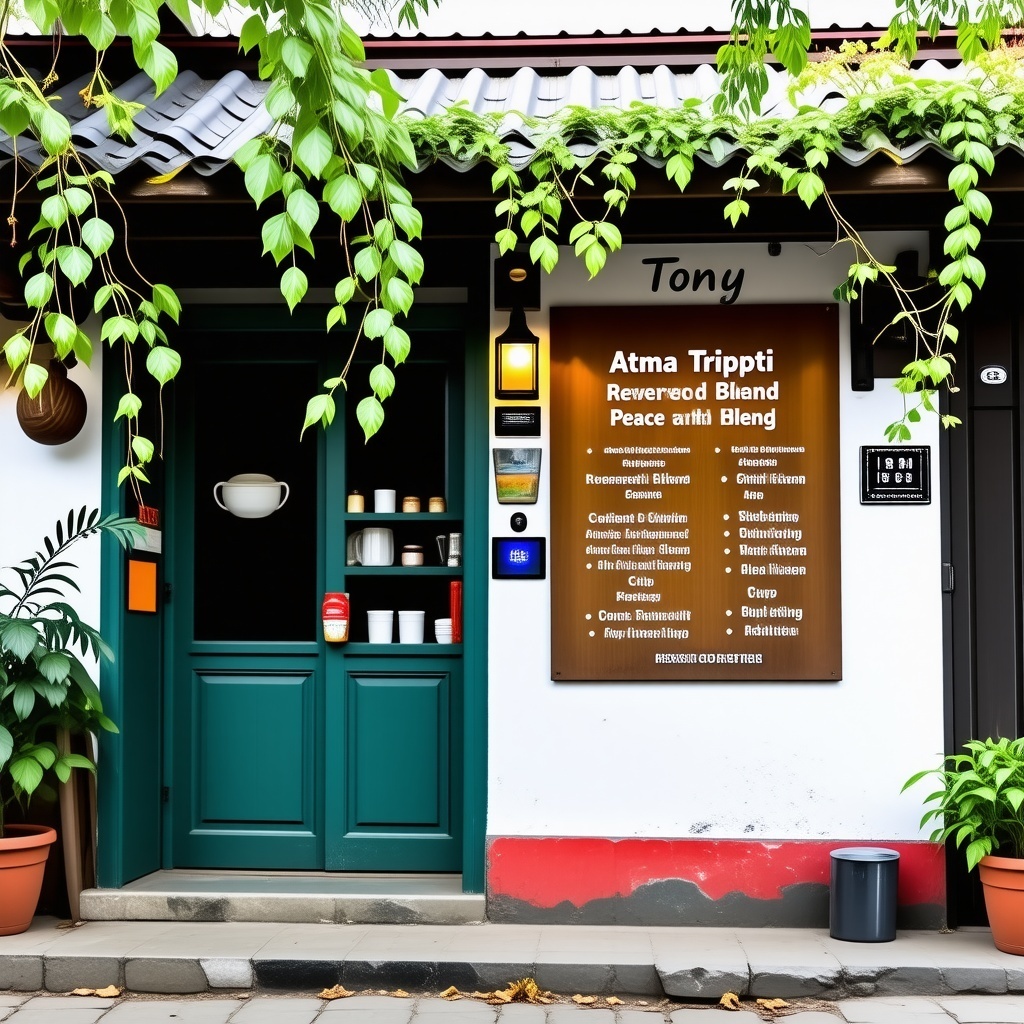On the sacred banks of the Sutlej river, nestled within the spiritual core of the city of Tongy, stood a modest coffee house. But this wasn’t just a place that served beverages. It brewed something far more powerful—a quiet kind of magic.
Just steps away from the famous Shiva temple, where nearly a lakh pilgrims arrived each day to offer their devotion, this little shop had become a ritual stop of its own. For many, the temple visit wasn’t complete without a cup of the house’s most revered drink.
Out of the 15 blends listed on the wooden menu board, one ruled them all: Atma Tripti.
It was more than a drink. It was serenity in a cup—a sip that lingered in the soul long after the taste had gone. Some said it healed heartbreak. Others said it brought answers to unspoken prayers. Whatever the truth, Atma Tripti had become legendary.
Behind this revered brew was a figure no less mysterious: Ravin, the quiet coffee master.
Tall, soft-spoken, and always masked—even years after the pandemic—Ravin was known more by craft than by face. Patrons recognized the warmth of the coffee before they ever recognized the person who made it.
While most people had discarded masks with the fading of the COVID-19 era, Ravin and her team kept them on. Some said it was for hygiene. Others believed it was just habit. But few knew the real reason: Ravin wore hers not just for safety, but for safety of identity.
She carried a secret.
Each morning, before the sun cast its golden rays over the temple dome, Ravin would make her way silently into the sanctum. After the first Abhishekam—the ritual bath of the Shiva linga—she would collect a small pot of the milk used in worship.
To her, it wasn’t just milk.
It was blessing.
It was grace.
It was the divine essence that made Atma Tripti what it was.
But divinity doesn’t always protect you from the harshness of the world.
One seemingly ordinary morning, as the scent of roasted beans rose with the dawn and pilgrims poured in, a scream split the air.
A woman had collapsed near the coffee shop entrance. She was in labor.
A crowd gathered. Phones came out. Eyes widened. But not a single hand moved.
“She’s from the lower caste,” someone whispered.
The murmurs froze the crowd. Cultural prejudice, old as the city itself, held even the most pious among them still.
Then Ravin stepped out.
She didn’t pause. She didn’t flinch. She simply looked into the woman’s eyes, scooped her into her arms, and ran—mask still on—to the nearby hospital.
She returned hours later, exhausted but calm. The woman had delivered a healthy baby girl. For Ravin, the day was done. But for others, it had only begun.
The crowd had thinned. But standing near the counter was the shop owner.
It wasn't about Ravin helping an ‘untouchable’.
He was angry because, in the throes of pain, the woman had begged to see the face of her savior. Her “God,” she had called her.
Ravin had gently removed her mask. Just for a moment.
The truth emerged like steam from hot coffee.
Ravin was not who the city thought she was.
She was a transgender woman.
A silence deeper than any prayer swept through the shop.
She did not beg. She did not deny. She told them her story.
Years ago, Ravin had begged on the streets, ridiculed and rejected by a world that refused to see her. After one especially cruel night, she had stumbled into the Shiva temple and broken down before the linga.
That day, she made a vow: if the deity gave her one more chance at life, she would never let anyone go thirsty or unseen.
Tongy had given her that chance.
To survive, she had donned a mask—both literal and metaphorical. She learned to blend in, learned the art of coffee, and poured every drop of her gratitude into Atma Tripti.
And yet, despite the prayers she served in every cup, her past had found her.
Her job was gone.
Her identity exposed.
Her dignity stripped—not for any mistake, but simply for being who she was.
Ravin left the shop quietly that evening. No farewell. No drama. Just the same silence she had always worn. Only now, the mask hung heavier on her face.
In a new city, she tried to start again.
New name. New place. Same soul.
But society had long arms, and judgment traveled faster than rumors. Customers would whisper. Employers would hesitate. Some would stare at her hands too long, trying to decipher her truth from the shape of her fingers.
And yet, she continued to wake each day and brew coffee.
Because Ravin had learned something profound in her journey:
You can hide your face.
You can blend your past.
But you cannot make the world kind.
You can only stay kind despite it.
And so, every morning, she still prays to Shiva.
She still seeks milk from the temple.
She still brews her blend.… Atma Tripti. Peace of the soul.



 React
React
 React
React
 React
React
 React
React